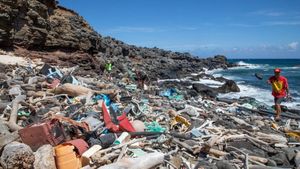The South Korean National Assembly held significant debates concerning the anti-corruption bill on February 21, 2025, focusing on constitutional improvements and enhanced government accountability. The assembly's gathering highlighted the urgent need for legislation to address the mounting concerns over corruption scandals affecting the current government.
During this pivotal meeting, An Gyu-baek, the chairman of the special committee investigating allegations linked to the declaration of martial law by the government, stressed the importance of strengthening governance to regain public trust. "We have to be resolute and act against corruption to rebuild citizens' trust," he stated, underscoring the legislative body's commitment to transparency.
Lawmakers from both the ruling People Power Party and the opposition Democratic Party voiced their opinions, reflecting the broad political spectrum of engagement required for such national issues. An Gyu-baek's leadership came to the forefront as he navigated through opposition from colleagues when the proposal for the summons of key witnesses was brought up. Despite resistance, lawmakers voted to approve issuing orders for several individuals—including President Yoon Suk-yeol and former Defense Minister Kim Yong-hyun—who failed to attend the session.
The call for greater accountability within the government stems from increasing public discontent and allegations of corrupt practices among officials. Lawmakers argued it was long overdue for the assembly to act decisively to address these issues, positioning the proposed bill not merely as legislation but as part of restoring faith in the nation's political framework.
"The public expects accountability, and it’s our duty to deliver on these legislative efforts," another assembly member asserted, highlighting the urgent demand for governmental change. The assembly's passage of the bill reflects this sentiment and the shared vision among several political factions to prioritize anti-corruption reforms.
Key points of the bill include enhanced powers for investigative authorities, larger penalties for corruption-related offenses, and mechanisms for tracking and recovering illicit assets. These measures aim to fortify the legal frameworks surrounding governance, making it harder for officials to engage in corrupt behavior without facing severe consequences.
During the proceedings, An Gyu-baek held up items symbolizing the necessity for change, signaling the lawmakers' emotional standpoint on the matter. His actions echoed the sentiments of many, who believe tangible changes are needed to combat the prevalent corruption issues effectively.
Despite pushback from certain assembly members who opposed the way the committee was proceeding, the gathered lawmakers voted to enforce measures requiring witness attendance by 2 PM on the same day. The rejection of opposition showed the prevailing support for tackling corruption head-on.
Returning to the central theme of fighting corruption, this bill is poised to reshape the legal and political landscapes within South Korea. Political analysts expressed optimism, detailing how effective anti-corruption legislation could improve not only governmental trust but also the overall governance ethos within public institutions.
With the discussions now transitioned to the proposal stages, the government faces expectations to enact these laws swiftly and efficiently. There is hope among citizens and lawmakers alike, resting on the belief this may signal the beginning of significant reforms capable of fostering newfound accountability.
Success will hinge not only on the swift passing of the bill but also on the genuine commitment from government officials to uphold the principles set forth by the legislation. The outcome of such endeavors could, over time, potentially lift the overshadowing specter of corruption and breathe new life and trust back from the public.



